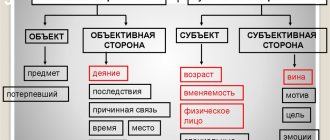What or who is AUE?
This abbreviation “AUE” appears quite often on the bodies of prisoners. Who are AUE people? These are people who adhere to the concepts of thieves, although they themselves have never been in prison.
The AUEshnik loves to show off his convict knowledge to other people. He constantly demonstrates a choice “fenya” in his everyday speech and always tries to act according to concepts.
AUE stands for: The Prison Order is One. As a rule, the AUE group includes young people aged 14-18 years. Usually these are people from disadvantaged families who have connections with people serving sentences in correctional institutions.
Such groups are implanted with a criminal worldview. They are extorting money from them to form a so-called common fund. For example, young AUE boys with their adult comrades extorted money from a schoolboy. He came to meet his father. They killed both on the spot, then they took the keys out of their pockets and went to their home, where they stole valuables.
Teenagers who consider themselves AUE hate the police and are not afraid to go to prison (many even believe that they are ready for prison. They call prison a second university). It doesn’t cost such people anything to hit a person without any reason.
First of all, for those in the know, the three letters AUE are a kind of identification mark. If a person knows what AUE is, then he supports thieves’ concepts.
AUE was invented by thieves in law as a kind of set of rules in the zone . Several years ago, criminals imposed their concepts on difficult teenagers from the provinces.
Who is a decent prisoner, and who is offended in the zone?
In fact, everything is much simpler than it might seem at first glance.
Prisons and camps live by their own unwritten rules and laws - according to the laws of the thieves and criminal world. The rules are very strict, and the punishments match the society in which they are applied - cruel, but fair. Depending on the actions of life and the path traveled, each prisoner and detainee develops a certain status. Also, depending on the involvement in the life of the general (the social life of the criminal world), each prisoner occupies a certain position in society.
Among free people, this position might be called a position or calling. A decent prisoner is a prisoner who has no nasty offenses behind him, lives a proper prison life, and corresponds to his status and position. In the camps, only decent prisoners may be allowed to participate in general affairs.
Often in camps and central centers I encountered a phenomenon where the only decent people were considered to be those who considered themselves criminals, denied everything that was Mushroom, and were shaking the regime (either they refused or most likely never worked). In our camp, and I think this is fair, even a simple man could be considered decent, behind whom there is nothing vile or unworthy of humanity.
What to do if the cops bring a dishonest person into the house?
It is unacceptable for a decent prisoner to sit in the same hut with a dishonest, red or woolly one, or even worse, with an offended one. This article will discuss how decent prisoners should behave if the cops bring wool and other livestock into their hut.
Here we will talk more about the so-called holy places, such as kicha or BUR.
In the cells in the central prison, decent people also adhere to similar beliefs, but in view of the fact that in the central prison there is not always room for each category of prisoners, sometimes you have to put up with the fur under the shkonar or the offended near the dalnyak (toilet).
The cells of holy places are called that way, because the people kept in them suffer there for their way of life, common deeds and beliefs. Under no circumstances should any fur appear in a decent cell, even on the threshold.
If you try to throw a woolly one into the cell, you need to break him (convince him that there is no place for him here and drive him out), if he himself does not catch up and does not break out of the hut. If this does not help, he must be beaten until the cops come running screaming and drag him out of the cell. If the cops ignore the decent one, there is nothing left to do but kill the nit.
If a decent person is thrown into a cell with red goats, and they are not too weak, the decent person will have no choice but to open up, because even death is better than being in holy places with fur or being offended.
Offended
When I first moved into my first house, naturally I knew nothing about who they were and why they were forced to drag out such a miserable and shameful existence.
No, of course, I knew from movies and books that there are people in prison who do not have rights, who replace women for other prisoners and the joys that flow from these replacements.
Then I was sure that these people simply had to suffer, since they all had to be rapists, maniacs and pedophiles.
All this turned out to be wrong. There are a huge number of rapists (at least those convicted under this article of the Criminal Code) who are not only not offended, but also engage in common affairs and are considered decent.
And there is another side to the coin.
Absolutely decent people and prisoners may accidentally find themselves among the offended (extinguished), commit an act for which the thieves will drive the offended person by force (you’ll be lucky if you get off by simply admitting that you are one, they often also demonstratively rape), and piquant things may also emerge details of your personal life that are unacceptable for a decent person (any kind of oral pleasures and other perversions).
What are the offended people forced to do in the zone?
It will be about the offended and their place in prison society. As I wrote before, you can get offended for various reasons, for example, you can extinguish yourself from another offended person by taking his things or smoking with him or simply taking a cigarette from him.
Also, all prisoners whose article is related to the rape of minors will undoubtedly be identified as offended. With other rapists, the arrest court acts more loyally and looks at the person’s actions in life, just as in the case of other criminal articles.
You can also become offended because of new life facts from the past that have been revealed.
Be careful, if you feel something wrong with you, but don’t want to clean toilets for the rest of your term (this is the best case), it’s better to try to hide it and not tell anyone, but keep in mind that they will find out what you hid, they will assign you to the cockpit and you’ll have to clean it up again not bad. They can swipe something on your lips. In some camps, people are publicly raped so that they know their place and never open their mouth again, but this is only for a serious act.
In the camps, the offended live with everyone else in a barracks, just in a separate corner, usually to the left of the entrance. The offended person has no rights. His duties include cleaning toilets, emptying garbage bins, cleaning sewers, etc. Any dirty and smelly work.
They are not allowed to eat from shared utensils; they go to the dining room only to fill a container with food. Sometimes thieves pay the offended with cigarettes for high-quality cleaning.
Also, some offended people can earn tea and cigarettes by having sexual contact with other prisoners, but now there is no coercion as there was before. Everything is by mutual consent.
Source: https://politika-v-rashke.ru/kto-poryadochnyiy-arestant-a-kto-obizhennyiy-na-zone/
About the title
This title is not available to everyone.
- First of all, a person communicates his intention to other representatives of this title.
- Thieves in law send news to all prisons and detention centers in Russia with the notification that such and such, with the nickname such and such, wants to become a thief in law. Anyone who can say something about the candidate, remember old sins, should do so.
- A potential thief in law needs to enlist the support of two thief in law with five years of experience. They will act as his guarantors.
Once the relevant persons have been properly notified, the meeting begins. They become thieves in law after the coronation.
"Watch your tongue"
In addition to thieves' laws, there are also prison laws, which many prisoners try to adhere to. For example, swearing behind bars is still considered bad manners. There are several reasons for this, according to experts in the criminal subculture. Firstly, the zone has its own criminal language - “Fenya”, which seasoned prisoners value very much. To prevent swearing from contaminating the “native” prison jargon, it is avoided in communication. Secondly, in the colonies it is very important to “watch your language”: any obscene word can hurt the feelings of a criminal and lead to a bloody conflict.
How to communicate with such people
The so-called “gopniks” are people who live according to concepts. These are mainly young people who are close to the criminal world or have a direct connection to it. But most often, criminal behavior has nothing to do with the attitude of these people to the world of thieves; in other words, they borrow someone else’s jargon and use it as they see fit. If you ask them what it means to live according to concepts, the answer may be indistinct muttering and a weak explanation of their views. The fact is that thieves’ ideas are different and people interpret them in their own way, which creates certain disagreements, and each person may have his own concepts. So what concepts do Gopniks live by in the end? Their blurred view of the world and discipline often has nothing in common with organized crime and the hierarchy that exists in the criminal world.
Concepts of thieves, people, disgusting...
My question is, did I understand the essence of thieves' concepts correctly? EVERYTHING THAT IS THIEF COME FROM HUMAN, AND EVERYTHING THAT IS HUMAN COMES FROM THE NOBLE? And is it possible to live in freedom with such concepts? And in general, tell me everything you know about these concepts, the more the better, thanks in advance. 1
Well, as if stealing and robbing is not entirely human. By coming up with all sorts of “noble” points in concepts, the lads seem to justify themselves - we, too, know about honor and human things. And he doesn’t allow his soul to become completely callous.
I don’t judge - criminals in our world also seem to be needed. That's why the pike is in the lake so that the crucian carp doesn't doze off. But I don’t belong to them myself.
When Christ, speaking about the fact that his betrayal and crucifixion were predetermined in advance, said: “The Son of Man walks according to his destiny, but woe to the man by whom He is betrayed.” And again: “It is impossible not to come to temptations, but woe to the one through whom they come.”
Those. It seems that betrayal and murder may be predetermined and necessary, but still their implementation remains on the conscience of those who committed them. A person always has a choice, in any situation - either towards love or away from it.
So, a little about the concepts. The general meaning of this word is rules, unwritten laws, a code of honor. If we talk about concepts in general, they are divided into two large categories: “positive” and “negative”. As always, this is a relative thing - from the point of view of a thief or a simple prisoner, something is positive, but from the point of view of a cop or a bitch - vice versa. I will speak from the point of view of “decent” prisoners - in this case it seems closer to me. So, from the point of view of the prisoner, “positive”, that is, acceptable to him, concepts are divided into two more categories - thieves and people.
In contrast to these two categories, there are “negative” concepts, which are divided into cop (the opposite of thieves) and bastard (the opposite of human) ones.
These terms are not used so often, and usually when they say “live according to concepts”, they mean according to thieves’ concepts. I will return to this topic again - a lot of questions come up, and we can talk a lot about it. For academic disputes, which are not uncommon among prisoners, current and former, it is very useful to understand and be able to justify such a division. At the very least, it will give you a big head start in any verbal conflict and may even earn you respect as an expert in the basics of life as a prisoner and a thief.
The foundation of relationships is human concepts. A person who adheres to them is called a decent prisoner, to which both men and lads can be counted. The behavior of idiots (who do not take care of themselves, who have fallen morally), those who are offended (those who end up in the roosters not as punishment, but because of stupidity), even if they do not belong to the category of decent people, is also assessed according to human standards, with a discount, of course, for their position.
In contrast to the decent ones, there is a category of reptiles - that is, those who deliberately went against human concepts. These are rats, chickens, lawless people. There is an expression “to ask like a bastard” - as opposed to “to ask like a brother” - that is, for a minor offense, often due to weakness or ignorance, for the first time, which can be limited to a conversation (something like public censure), a proposal contribute something to the common fund, a symbolic slap in the face. If a person doesn’t make any more mistakes, then soon he usually returns to normal relationships. Demand like a bastard is a more serious matter. To do this, you need to commit a serious offense - steal from cellmates, snitch, provoke the cops to press the whole house, commit chaos in prison (take away, hit) or a condemned act in the wild (crimes against children, rape). Very often, the demand as if it were a bastard ends in demotion - a symbolic or real transfer to the lowest caste of the degraded. The question, as you understand, is individual. There may be different demands for the same actions - it all depends on the person and the circumstances.
Prison is a place where relationships and events move much faster and more intensely. Therefore, unlike the will, the transition to the vile category is usually irrevocable. It is no longer possible to go back by any actions. Having committed one offense against humanity, a person, as a rule, until the end of his sentence, and usually for all subsequent sentences, no matter how long, when and where he will have to be imprisoned in the vastness of the former Union, remains a bastard - a despised creature. If he was lowered for his action, then there is no turning back under any circumstances. On the one hand, this may seem like too severe a punishment - for example, washing a bucket for the entire 15-year sentence for once stealing candy from a cellmate. On the other hand, life in a crowded cage requires much stricter adherence to the rules and norms of human society - accordingly, the punishments are more severe.
The general rule on this matter is that you can ask if a person’s actions have caused harm either personally to someone (including moral harm) or to the general public (house, prison). For demand, a charge must be made, and it must be substantiated. A person has the right to defense, to attract witnesses (eyewitnesses, that is, the word “witness” is offensive), he may be given time to communicate. In general, the system very closely replicates the justice system, only with different terminology.
As for human concepts, EVERYONE is obviously expected to accept them, and for refusing them there is a punishment. The concepts of thieves are voluntarily assumed obligations to adhere to the code of thieves. That is, direct opposition of oneself to the authorities and society, primarily to the cops, as their representatives. Just like the cop concepts - voluntarily assumed obligations, including the code of honor. These are two castes of warriors on the warpath. Moreover, representatives of both groups can commit both human and vile acts. A criminal who has committed lawlessness acts like a vile person, but a cop who does not bring personal hatred into his work acts like a human being.
If we try to generalize, then the human thing is the desire for mutual assistance, mutual understanding, sympathy, self-sacrifice, in a word, interaction, and the nasty thing is putting one’s personal interests above public interests, the desire to satisfy them at the expense of others, to the detriment of others, in a word - opposition. The reason for nasty behavior is always the same - fear. Just like the basis of humanity is love. And the cause of fear is a lack of love in the soul.
The concepts of thieves are also a contrast. For the same reason. For example, if, according to human concepts, an offense can be forgiven, then according to thieves, it is not. In order not to completely destroy your soul with such a worldview, in thieves’ concepts there are a lot of “noble” points, such as not stealing from hard workers, etc. But this does not change the essence, it only creates an illusion.
(in the last two paragraphs, I probably missed some links in the logical chain and used some terms without proper explanation, but I won’t correct it. It seemed to me that everyone usually understands what I’m talking about. Or can understand if they want. )
This text is an introductory fragment.
Continuation on liters
Boy's Rules
Boys in prison are called teenage thieves who learn from the experience of their older comrades.
In groups of boys it is customary to:
- Be responsible for your words (“for the market”).
- Show courage and not show cowardice.
- Be ready for a fight.
- Dress carefully.
- Defend territory.
- Don't be aggressive towards girls.
- Do not attack a stranger if he is walking with a girl.
- Don't rat out your friends.
- Always respect your mother.
- Fight only when there is a reason and always honestly, one on one.
It is important to perceive such concepts from life itself. They will not be voiced and will not be told to remember. A person entering a community of thieves for the first time needs to observe the behavior of its members in order to understand the essence of concepts in real behavior and everyday life.
Russian
Type and syntactic properties of the combination
from-ve-chat for ba-zar
Stable combination (phraseologism). Used as a verb phrase.
Pronunciation
Semantic properties
Meaning
Synonyms
Antonyms
Hypernyms
Hyponyms
Etymology
Perhaps, from the meaning of ch. bazaarit (jarg, crim.) - “chat.”
Translation
This is an unfinished article. You can help the project by correcting and expanding it. In particular, you should clarify information about:
(See General Rules).
Dictionary of slang terms used in everyday life
Prison jargon is varied and vast. A dictionary-translator of slang phrases, if there was one at all, would probably be as large as the Soviet Encyclopedia. As mentioned earlier, in the zone the jargon is updated daily with new words, in addition, knowledge of slang expressions is passed on from generation to generation, and many words are used even in everyday life. Below is a list of the most commonly used expressions and their meaning. The most basic thing that an ordinary person needs to understand if he encounters gopniks:
How to answer the words “who are you”: original and correct answers to the question
But what does it mean to live according to thieves’ concepts if you do not engage in any crime? In pursuit of authority, fame and the dream of receiving the coveted title of “thief in law”, climbing, so to speak, up the criminal social ladder, many commit serious crimes. And if in the 30s and 90s of the last century such behavior was relevant mainly due to poverty and inflation, then the question remains: is it still relevant now?
The expression “thief in law” suggests the idea that criminals get away with all their deeds due to the presence of some kind of law. In the true sense, the expression in “law” does not specifically imply the jurisprudence of the country, but refers specifically to thieves’ concepts, the laws of the second, hidden world. A world where there are people of four “suits”, divided among themselves by a certain type of activity.
Due to the fact that new social groups have formed, the so-called “gopniks,” who push thieves’ ideas to the masses, prison jargon has long penetrated into the ordinary vocabulary of many. The translator dictionary may not be familiar with many words, partly due to the fact that every day this variety of the Russian language is replenished with new adverbs.
All prisoners can be divided into two large groups:
- Thieves or thieves, that is, prisoners leading a corresponding lifestyle. For them, prison terms are part of their “professional” activities. It is these prisoners who live by the rules and ensure that the rest of those in prison adhere to them.
- "Men." The caste of prisoners who committed domestic crimes, as well as political prisoners. They must also follow a number of concepts, but only thieves have the right to judge controversial situations that arise in real life in prison.
The key concepts are the following requirements:
- You need to maintain order in the cell, resolving conflicts in a calm conversation, without fights or swearing.
- Don't send other prisoners. You can pay for this with your health and sometimes your life.
Of course, there are many more concepts in prison. Consider the most important of them.
When a person asks us something, we want to answer in such a way that the phrase carries some meaning. But there are controversial situations when you need to avoid answering. What is the right thing to say in this case? Here are the possible answers to the words “who are you” :
- I am an individual, I am a personality, I am unique - perhaps the interlocutor will even want to know why the stranger is unique. There is a chance to get acquainted or even start a discussion.
- I am asthenic/normosthenic/hypersthenic – a more humorous option. Of course, the interlocutor wants to know not about physique at all. However, this is an opportunity to smooth out an awkward pause.
- I’m a human being —there’s no arguing with that answer.
- I am a horror flying on the wings of the night - a comic option in an informal, friendly atmosphere.
- I am a Citizen of the Russian Federation.
- I am Darth Vader, recruiting the space force.
- I am the one you should address as “you.”
- I am the person with whom your worldview will change.
Of course, you should take into account the intonation with which these words are pronounced. And also, before answering, it is important to make a brief analysis of the person who asked the question.
It is necessary to clearly distinguish between true prison concepts and false concepts. The first is the prisoners' code of honor. They are also recognized by the prison administration, since they help maintain order in the zones.
False concepts are a way to grow in the eyes of other prisoners at the expense of someone. This method is usually used by inexperienced prisoners who have no real authority among the thieves.
When people say “live according to their concepts,” they usually mean the criminal thieves’ concepts. Negative “cop” concepts are rarely mentioned in the criminal community.
A person who adheres to human concepts is considered decent in the zone. Sometimes offended and morally degraded thieves are also judged by human standards.






